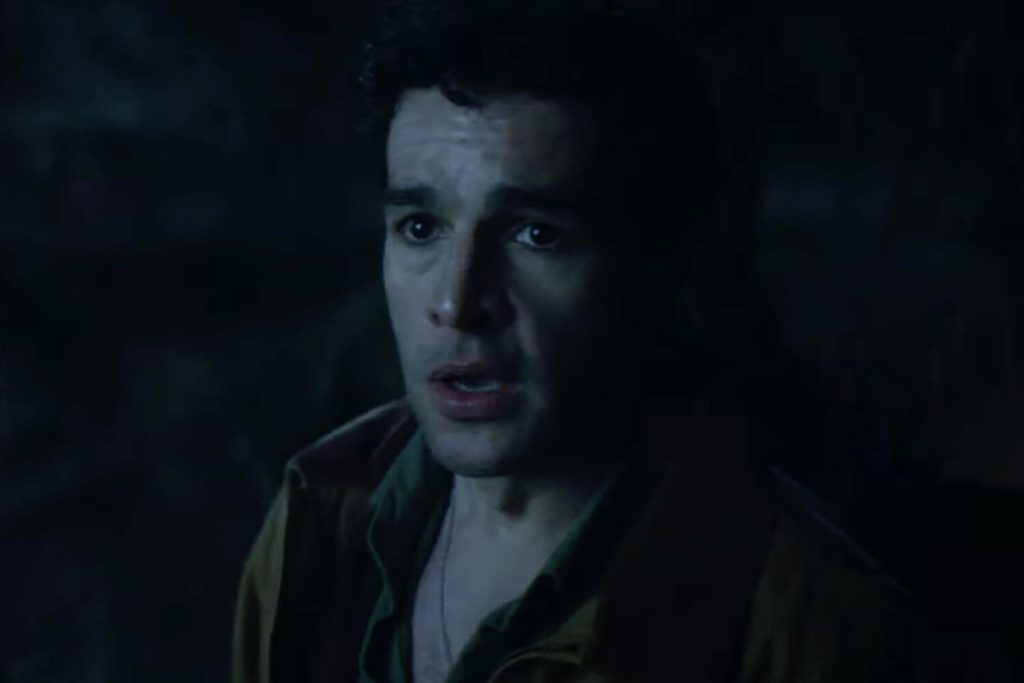world news
Christopher Abbott’s Transformative Journey in Wolf Man: A Study of Horror, Humanity, and Monstrosity
The Surreal Transformation: Abbott’s Initial Reaction
When Christopher Abbott first saw himself in full prosthetics as the titular character in Leigh Whannell’s Wolf Man, his reaction was a mix of astonishment and humor. The elaborate transformation turned the actor into a grotesque, unrecognizable version of himself, leaving him both amused and stunned by the surreal experience.
The character of Blake, Abbott’s role in the film, undergoes a harrowing transformation into a werewolf, a process made visually stunning by the meticulous work of prosthetics designer Arjen Tuiten. Abbott’s immersion into the role was not simply a matter of donning makeup; it was an exploration of primal instincts and humanity’s darker side. The physicality and intricacy of the transformation deeply affected Abbott, who described it as “ridiculous” and “insane” in its realism.
This visceral transformation was critical to Whannell’s vision for the film. The director wanted Abbott’s portrayal of the Wolf Man to capture both the grotesque nature of the monster and the emotional core of a man losing himself to his inner beast. This dichotomy became the heart of Abbott’s performance, making the transformation both terrifying and deeply poignant.

Co-Star Julia Garner’s Perspective on the Monster
Julia Garner, who plays Charlotte, Blake’s wife in the film, provided her own perspective on Abbott’s startling transformation. The grotesque and hyper-realistic prosthetics left a lasting impression on her, with Garner describing the look as both “terrifying and gross.” She admitted that even after days on set, she continued to discover unsettling details in the design, underscoring the depth of the prosthetic artistry.
Garner’s role as Charlotte is central to the emotional core of the film. As the wife of a man succumbing to a monstrous transformation, her character must navigate the emotional toll of watching someone she loves slip away, both physically and mentally. Garner noted that seeing Abbott in full prosthetics made it easier for her to channel Charlotte’s fear and heartbreak, as the visual impact of the Wolf Man’s appearance blurred the lines between reality and performance.
Her reaction to the transformation underscores the immersive environment created by Whannell and his team. By blending cutting-edge prosthetics with emotionally charged performances, the film brings its horror elements to life in a way that feels both grounded and otherworldly.
The Physical and Emotional Toll of Transformation
For Christopher Abbott, the role of Blake/Wolf Man presented one of the most physically and emotionally demanding challenges of his career. The transformation sequences required Abbott to embody the physical agony and psychological turmoil of a man losing control of his body and mind.
Director Leigh Whannell envisioned the werewolf transformation as akin to a degenerative disease, drawing inspiration from real-world conditions like Alzheimer’s and Parkinson’s. This approach required Abbott to convey not just physical pain but also the profound fear and confusion that come with losing one’s sense of self. The film’s use of ultraviolet and infrared cameras to depict Blake’s altered perception further immersed the audience in his deteriorating state.
The emotional weight of the performance extended beyond the transformation scenes. Abbott had to navigate the tension between Blake’s lingering humanity and his growing monstrous instincts, creating a nuanced portrayal that elevated the horror narrative. The result is a character who is as heartbreaking as he is terrifying, making Wolf Man a standout entry in the werewolf genre.

Thematic Depth: Horror Meets Human Struggles
While Wolf Man is rooted in horror, its narrative delves deeply into themes of familial relationships, identity, and societal expectations. The film places a significant focus on the dynamics of modern parenthood, as Charlotte balances her demanding career as a journalist with her role as a mother, while Blake takes on primary parenting responsibilities.
This inversion of traditional gender roles adds a layer of complexity to the story, exploring the emotional struggles faced by parents who feel disconnected from their children or overwhelmed by societal pressures. As Blake succumbs to the werewolf virus, the film examines the fragility of identity and the toll that losing control over one’s life can take on a family.
Director Leigh Whannell’s decision to weave these human struggles into the fabric of the horror narrative elevates Wolf Man beyond a simple monster story. It becomes a meditation on the vulnerabilities that define us as individuals and the ways we confront—or fail to confront—our deepest fears. By grounding the horror in relatable human experiences, the film resonates on both a visceral and emotional level.
Back 2 Back NFC North Division Champions 2024 Detroit Lions Unisex T-Shirt
Critical Reception and the Legacy of Wolf Man
Wolf Man has already generated significant buzz for its innovative approach to a classic monster tale. Critics have praised the film for its seamless blend of horror and emotional depth, with particular accolades for Abbott’s transformative performance and Whannell’s visionary direction.
Early reviews have highlighted the film’s ability to maintain its core thematic focus while delivering visceral scares. By framing the werewolf transformation as a metaphor for loss and disease, Wolf Man redefines the genre for a modern audience, offering a story that is as thought-provoking as it is terrifying. Julia Garner’s portrayal of Charlotte adds further weight to the narrative, providing a poignant counterbalance to Abbott’s monstrous descent.
Chicago Bulls Signature Thank You For The Memories Unisex T-Shirt
As Wolf Man enters theaters, it has positioned itself as a landmark entry in the werewolf genre, one that challenges conventions and reimagines the classic monster story for contemporary viewers. The film’s legacy will likely be defined not only by its visual and narrative innovations but also by its ability to resonate with audiences on a deeply human level.
From decoratedbliss

